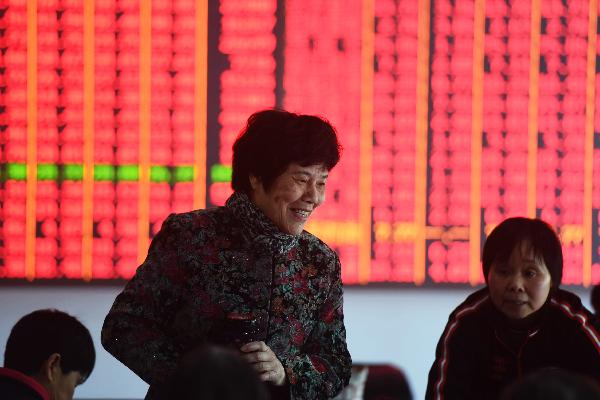
China is having another go at creating its own version of Nasdaq, a marketplace for the country’s best technology stocks. But first, it needs to teach its investors that share prices can go down as well as up.
Shanghai’s stock exchange is set to launch a new board in the coming months with a different set of rules to attract the country’s technology companies to list and raise capital there. Due to underdeveloped local stock markets, most of China’s largest technology companies, including Alibaba and Tencent, are either listed in Hong Kong or the U.S. Beijing would love to see the next batch of homegrown tech champions stay at home as many of the country’s unicorns—private companies valued at more than $1 billion, of which China accounts for about a third of the world’s total—look to go public soon.
China has tried this before without much success. An existing market for tech companies in Shenzhen, the ChiNext, is more famous for its volatility rather than being a hub for quality companies.
Last year, Beijing wanted to lure Chinese tech companies to list in the mainland by issuing Chinese depository receipts dubbed CDR, akin to the ADRs and GDRs used to facilitate global companies in New York and London. That move, however, stalled after smartphone maker Xiaomi shelved its plan to raise at least $5 billion that way in an initial public offering without any official explanation of what went wrong.
Looser regulations at the new exchange will make it easier and quicker for companies to raise money. Unprofitable firms or those with dual-class structure would be allowed. Crucially, listing will be registration-based, unlike the current system where each company has to be thoroughly vetted by the regulators. That has created a logjam of companies waiting to get listed.
China’s paternalistic approach to market regulation has bred serious moral hazards in mainland markets. Regulators have, for example, unofficially capped valuations of IPOs at 23 times historic earnings. This made investors believe that buying into an IPO is a can’t-lose proposition. Indeed, all but one IPO since the start of 2018 has surged by 44% in the first day—the maximum allowed. On average, Chinese IPOs are routinely thousands of times oversubscribed and double in value after 20 trading days.
The new Shanghai board will scrap any restrictions on valuations, which means tech companies will be able to raise more money at better prices. The danger, though, is that investors may still view offerings as a one-way bet. In anticipation of the new exchange, an investment frenzy in Shenzhen-listed tech stocks has ensued. Some have doubled or even tripled in the past few months. Regulators will limit participation in the new exchange to investors with at least 500,000 yuan ($74,500) of net assets and two years of trading experience. Some are already trying to get around that by borrowing, according Xinhua.
Writing new rules is the easy part. Taming rampant animal spirits in mainland markets is far more difficult.






















Latest comments